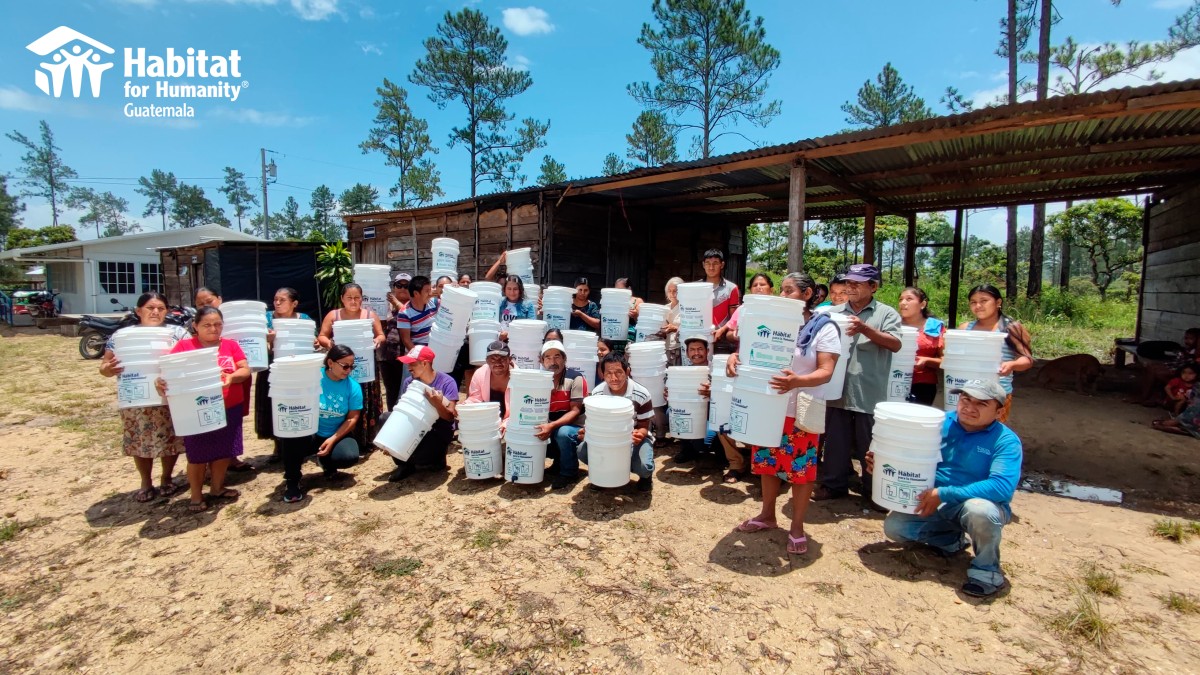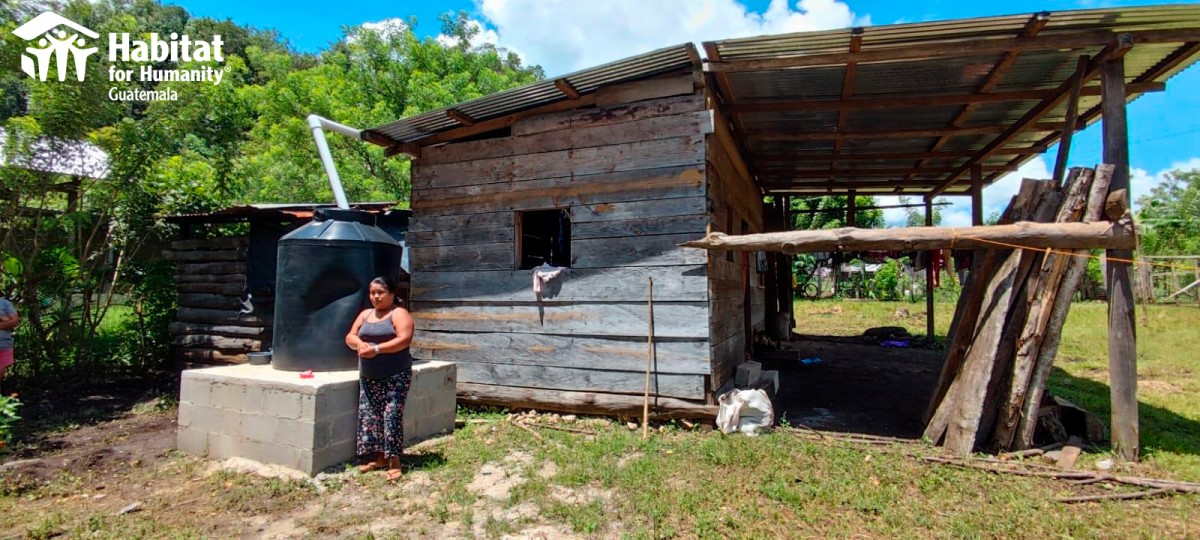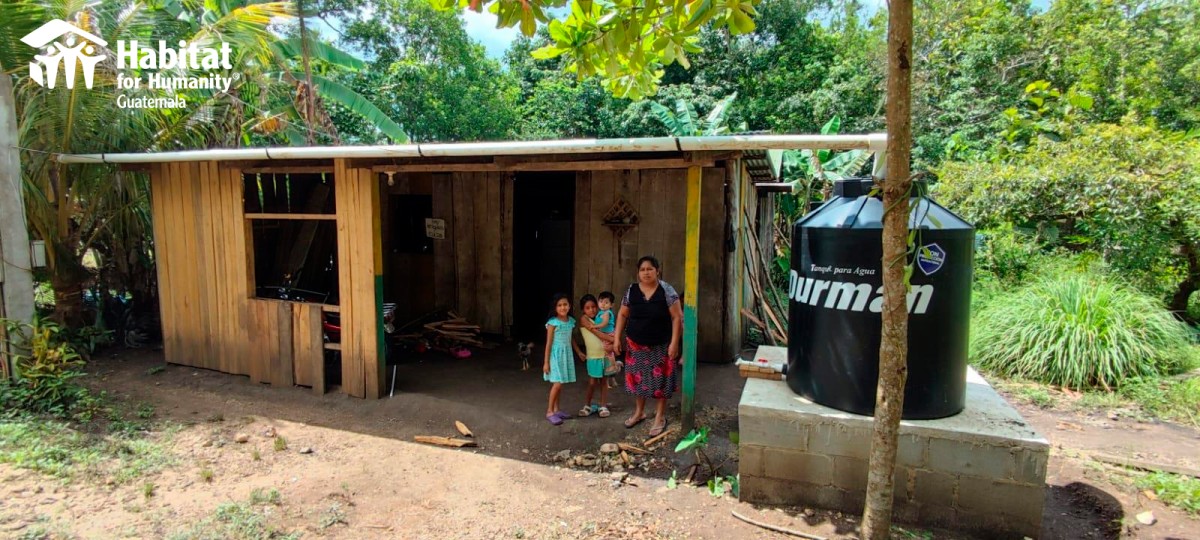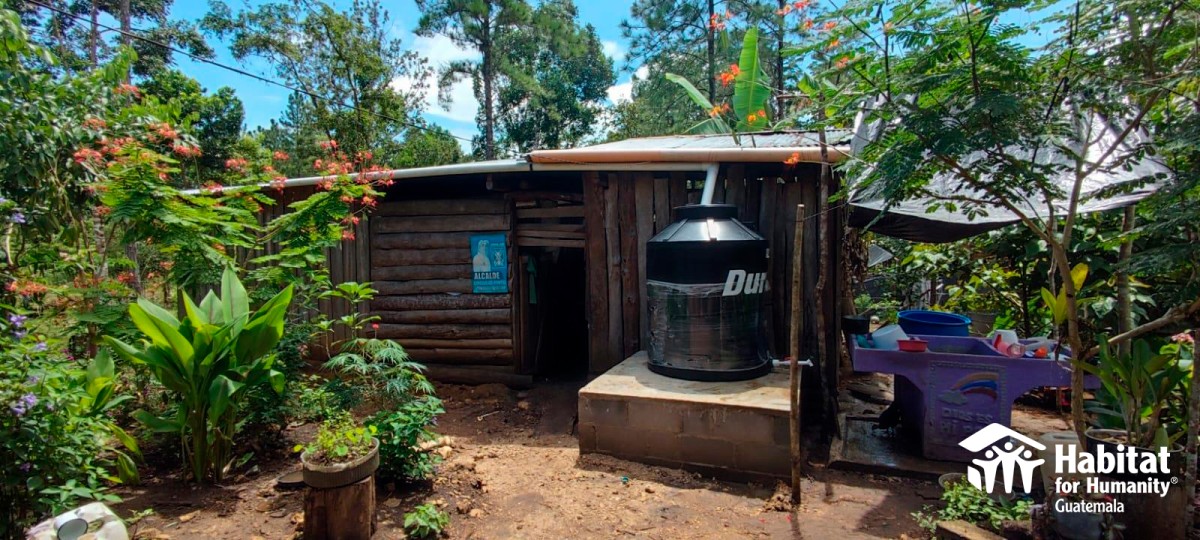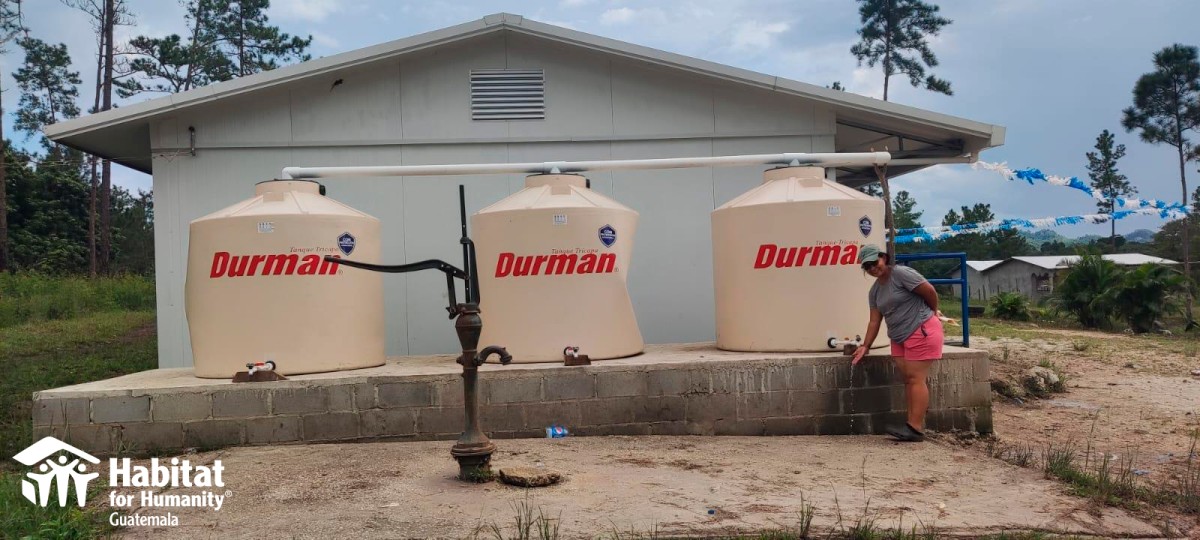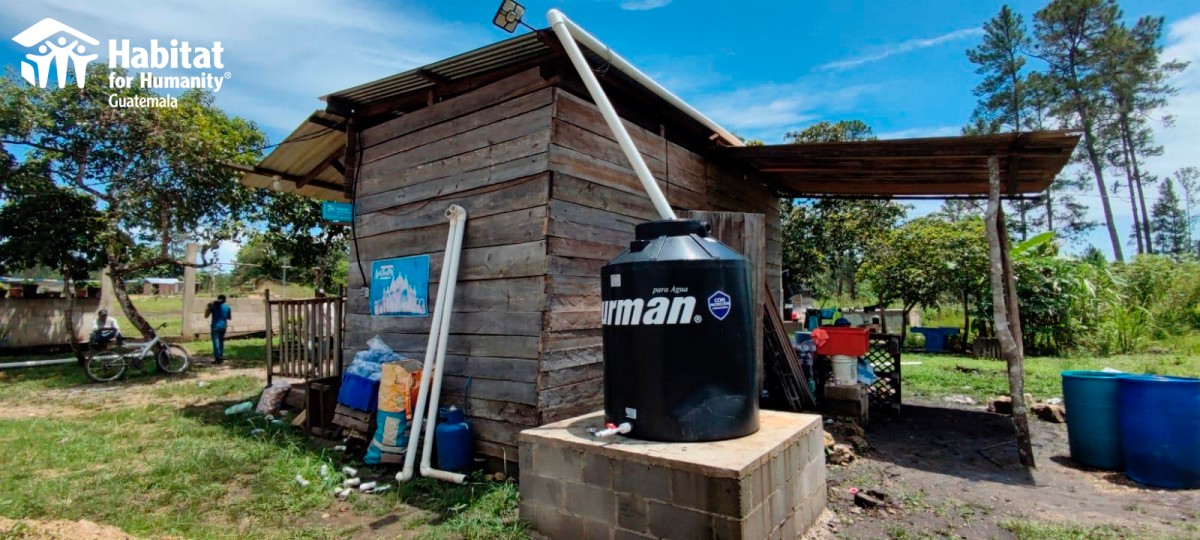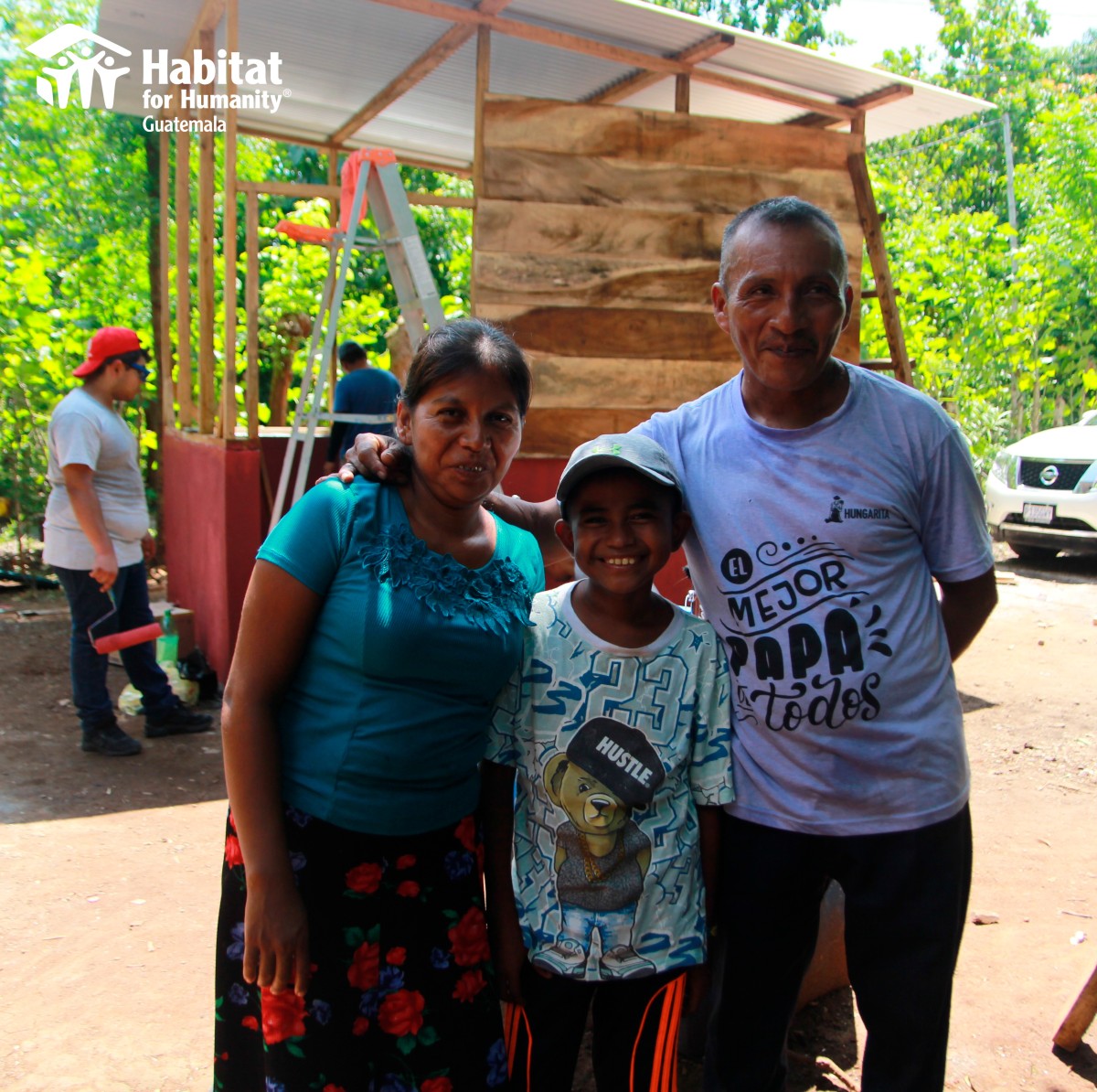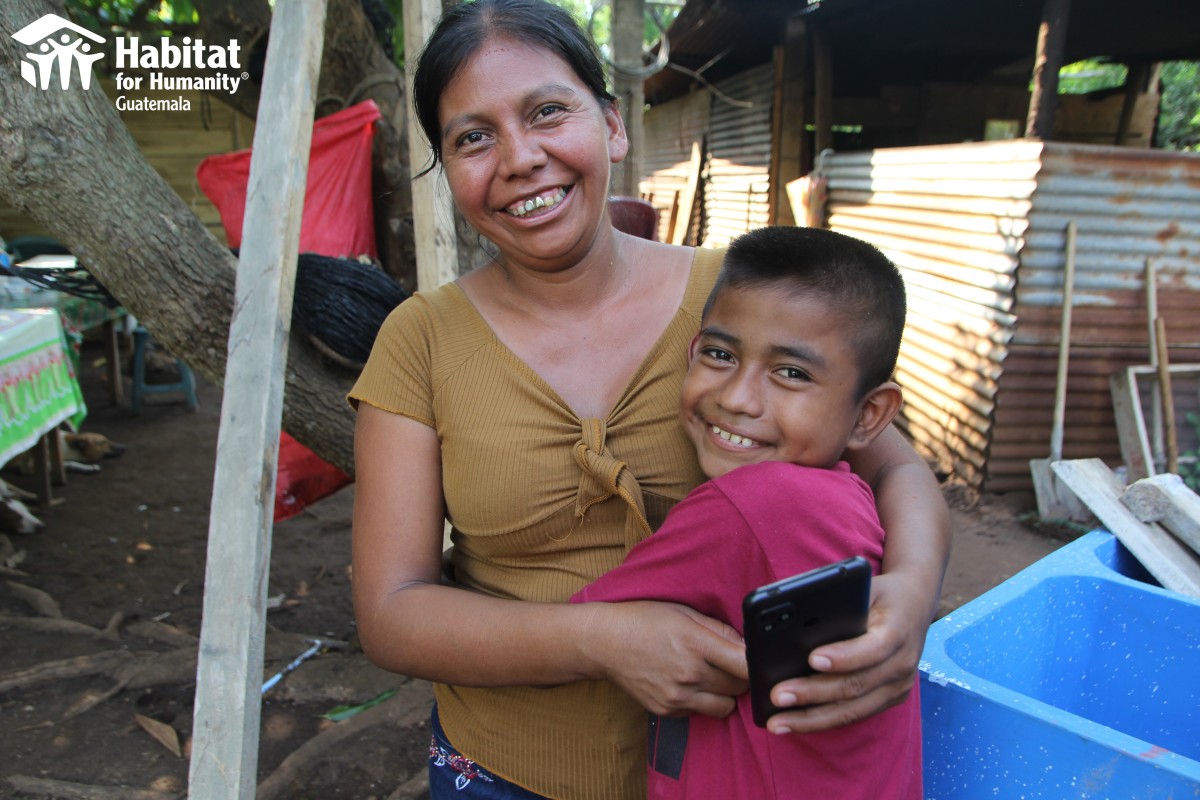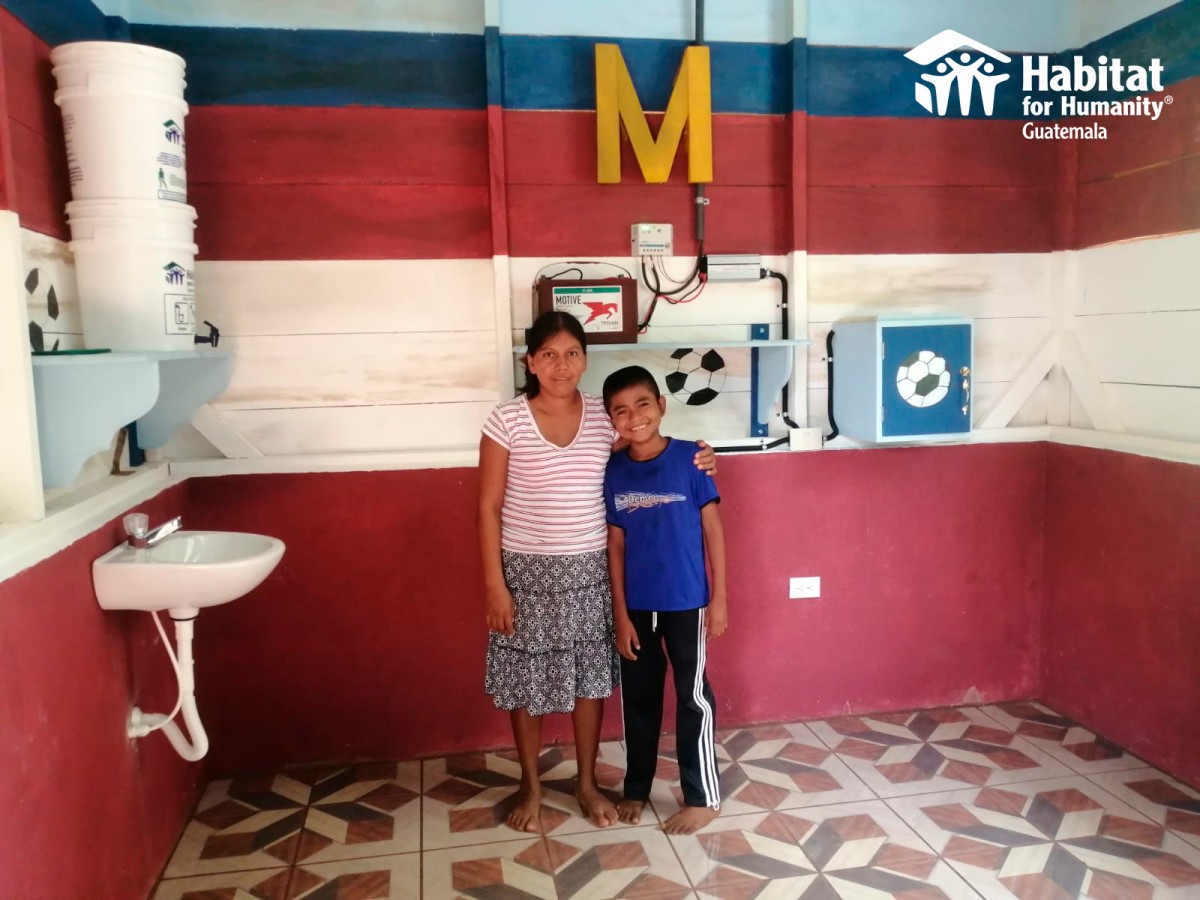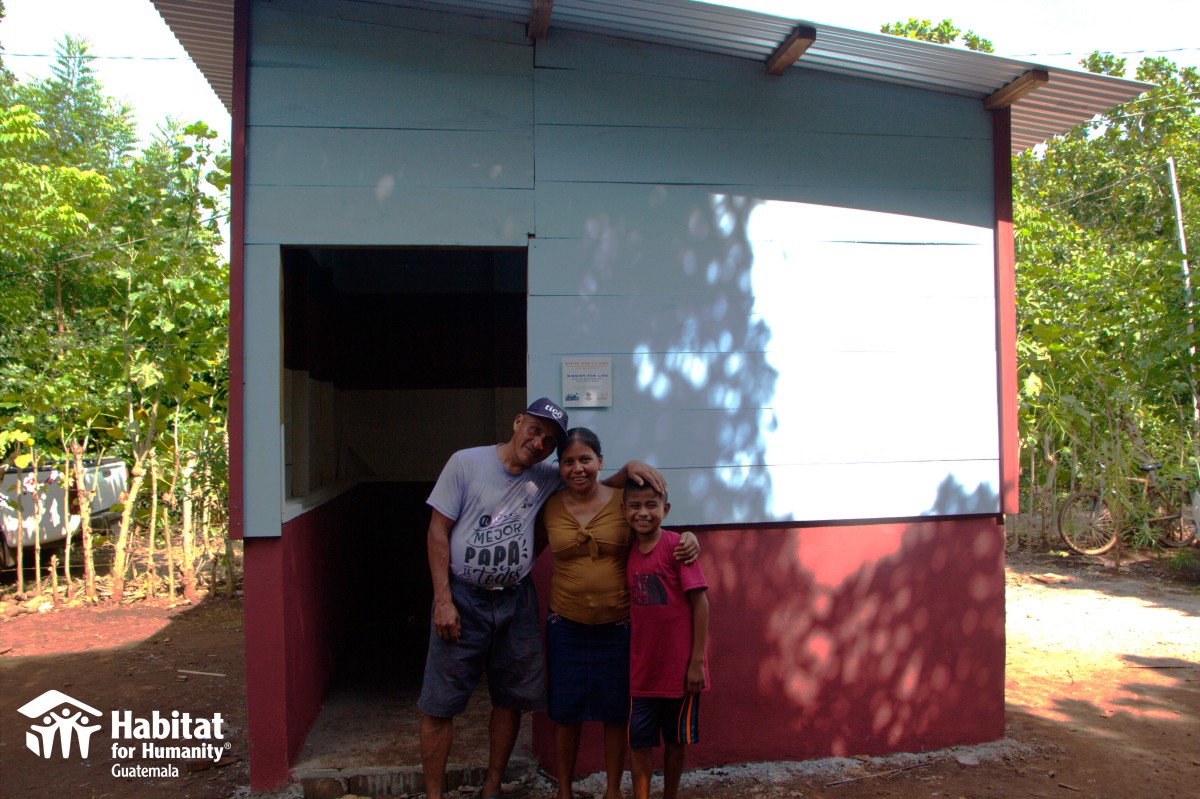Hope for Vicenta through a new home
Habitat for Humanity Guatemala and Familia Horizonte are working together so that more low-income families have a decent place to live, specifically in a project in Aldea La Fragua, municipality and department of Zacapa, Guatemala.
The first phase of this project is the technical planning for the construction of micro communities, to benefit low-income families, in order to recover the stability they need for children to live in a decent home and housing; and in the following phases, joint fundraising strategies will be worked on for this purpose.
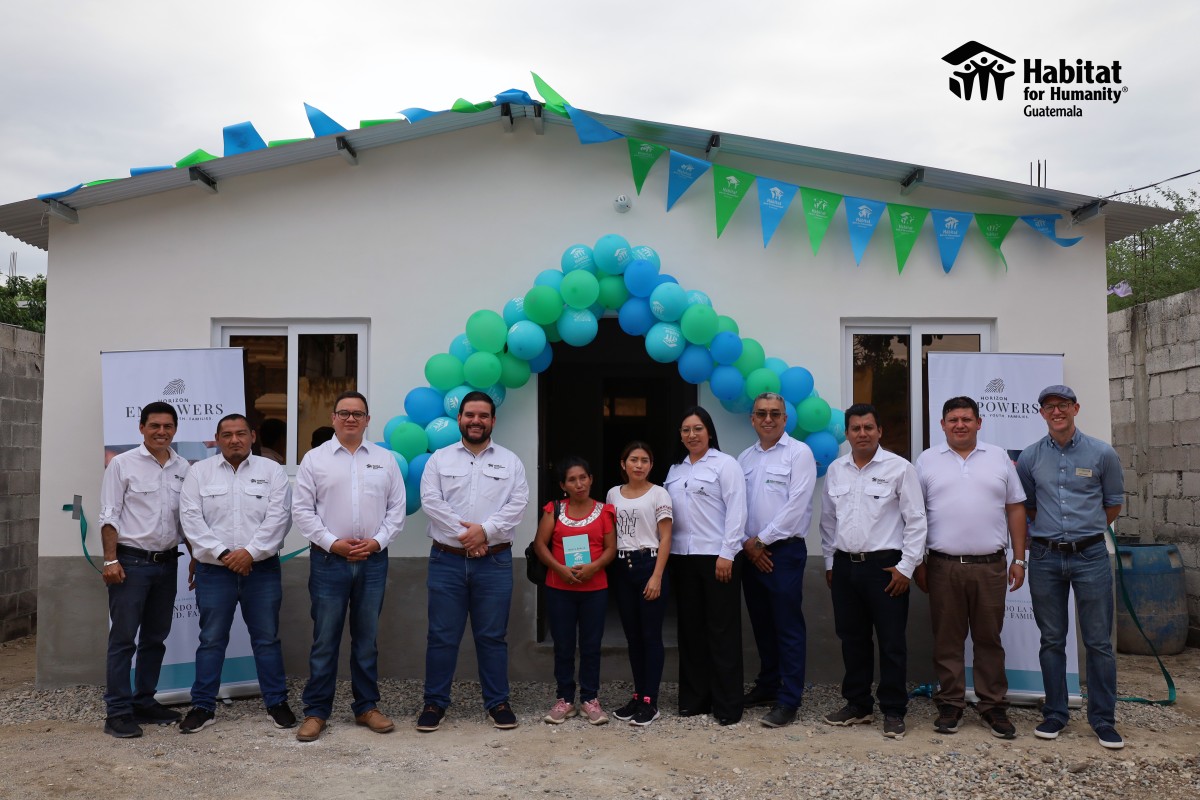
Today, a personalized home was delivered to Doña Vicenta and her family, which will provide them with strength, stability and self-sufficiency.
The house has:
- 3 bedrooms
- 1 corridor
- 1 living room/kitchen/dining room
- 1 bathroom
The house is built with: concrete, 25 kg block, metal sidings, Aluzinc sheet, metal door, windows and smoothed cement floor.
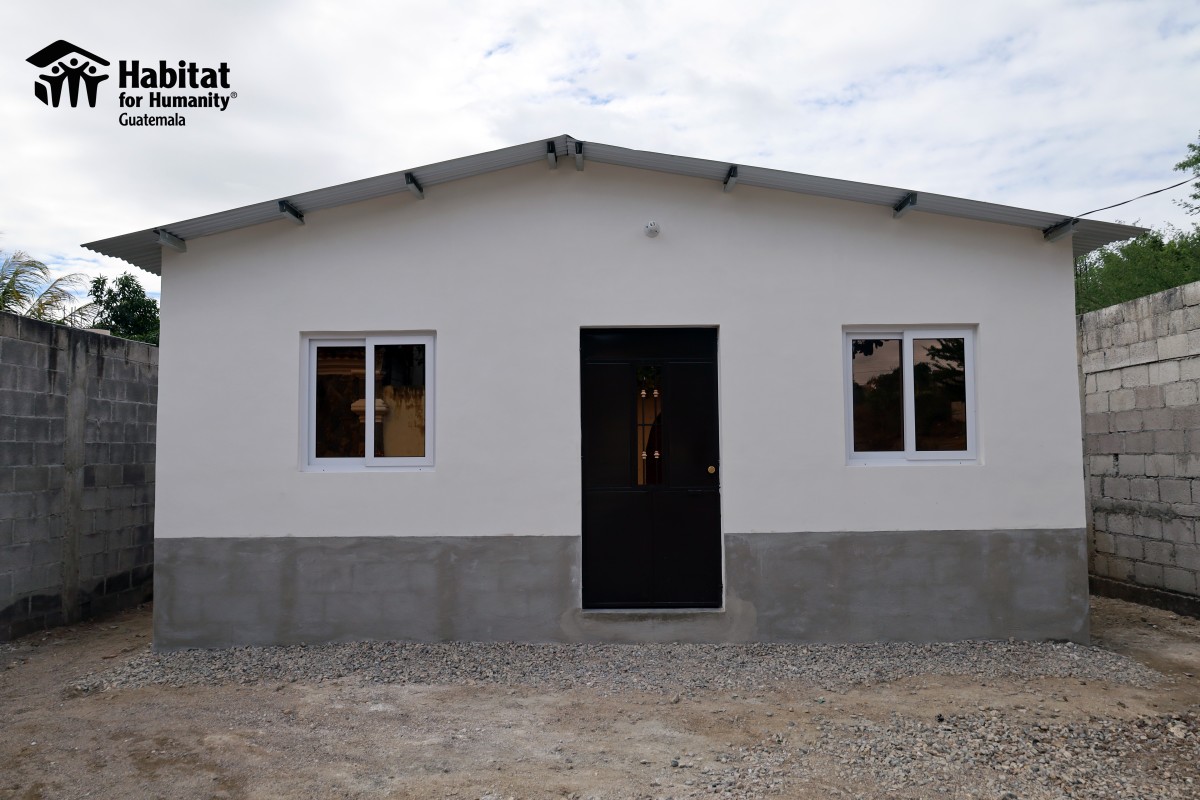
“For 44 years we have impacted more than 155 thousand families through decent housing and construction improvements. Our Program of Attention to Extreme Poverty has contributed to the integral development of more than 72 thousand families. This has been achieved through the use of local resources and alliances such as the one we are strengthening today. We are happy that together we will be able to transform the lives of many families in Guatemala, because every person deserves a decent place to live”. Delorean Randich, national director of Habitat for Humanity Guatemala, said.
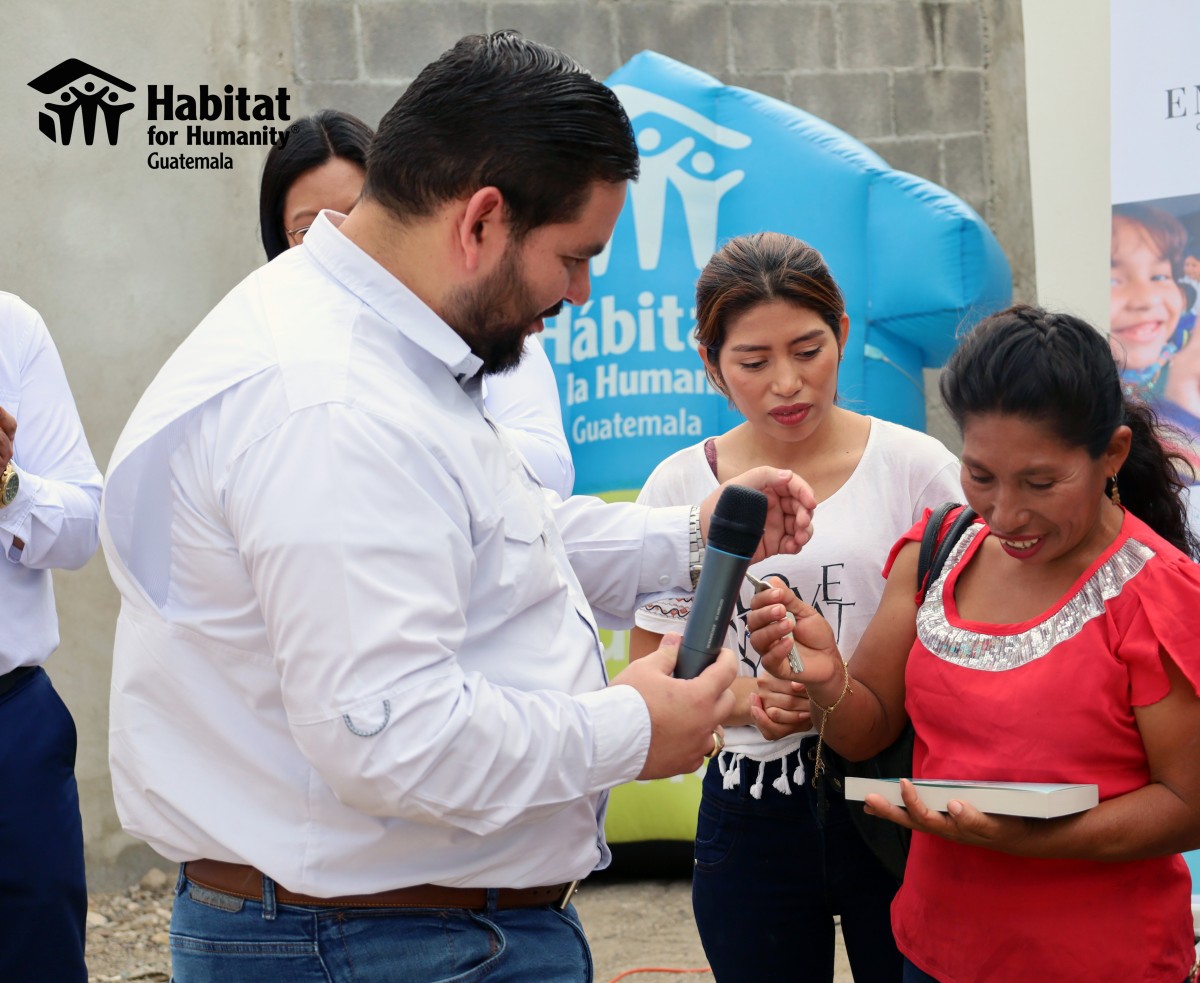
With this alliance, work will continue to improve the living conditions of families in eastern Guatemala.
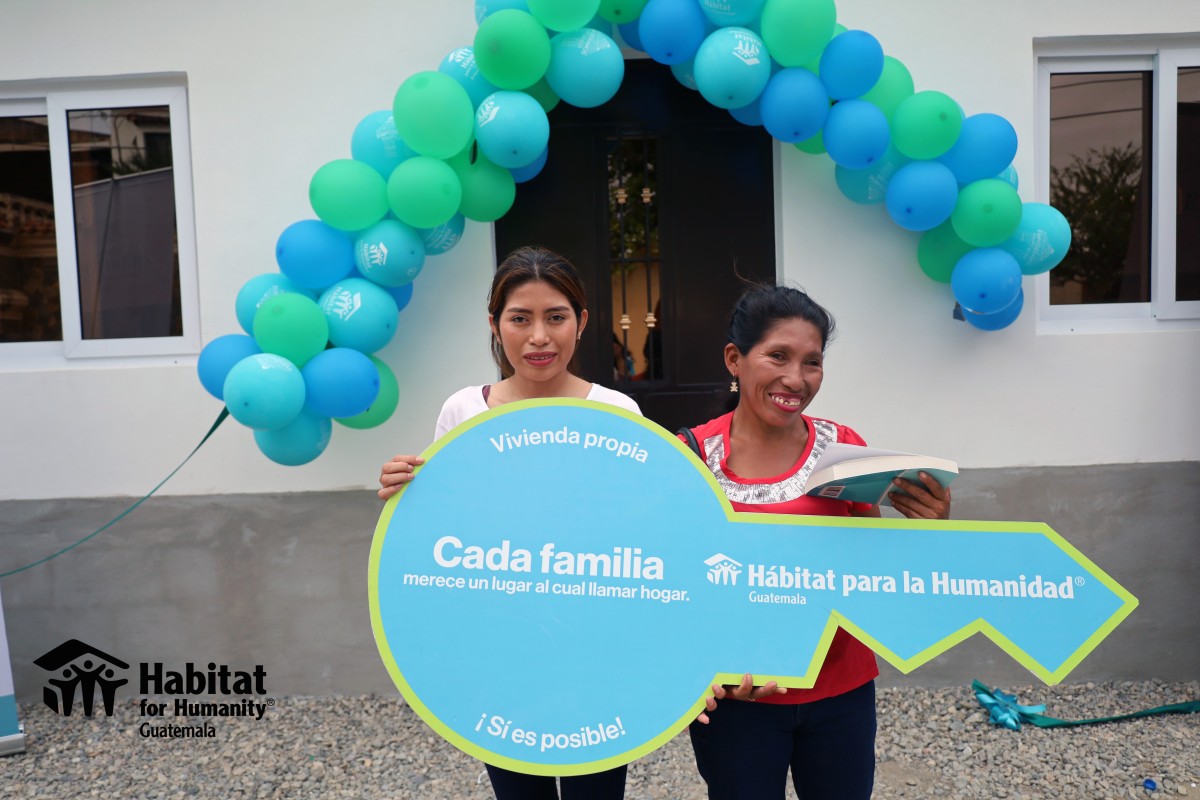
Habitat for Humanity Guatemala has been facilitating access to decent housing for low-income families throughout the country for more than 44 years, contributing to the reduction of the quantitative and qualitative housing deficit. It empowers each person, promotes social participation and community development.
Familia Horizonte is a non-profit organization, innovatively leading a path of radical transformation that rescues, restores and empowers orphaned and vulnerable children and at-risk youth towards a life of self-sustainability, strengthening families, building community resilience and creating sustainable social enterprises.
Contact:
Diana Reyes, Communications Coordinator
Habitat for Humanity Guatemala
4740-642 DReyes@habitatguate.org

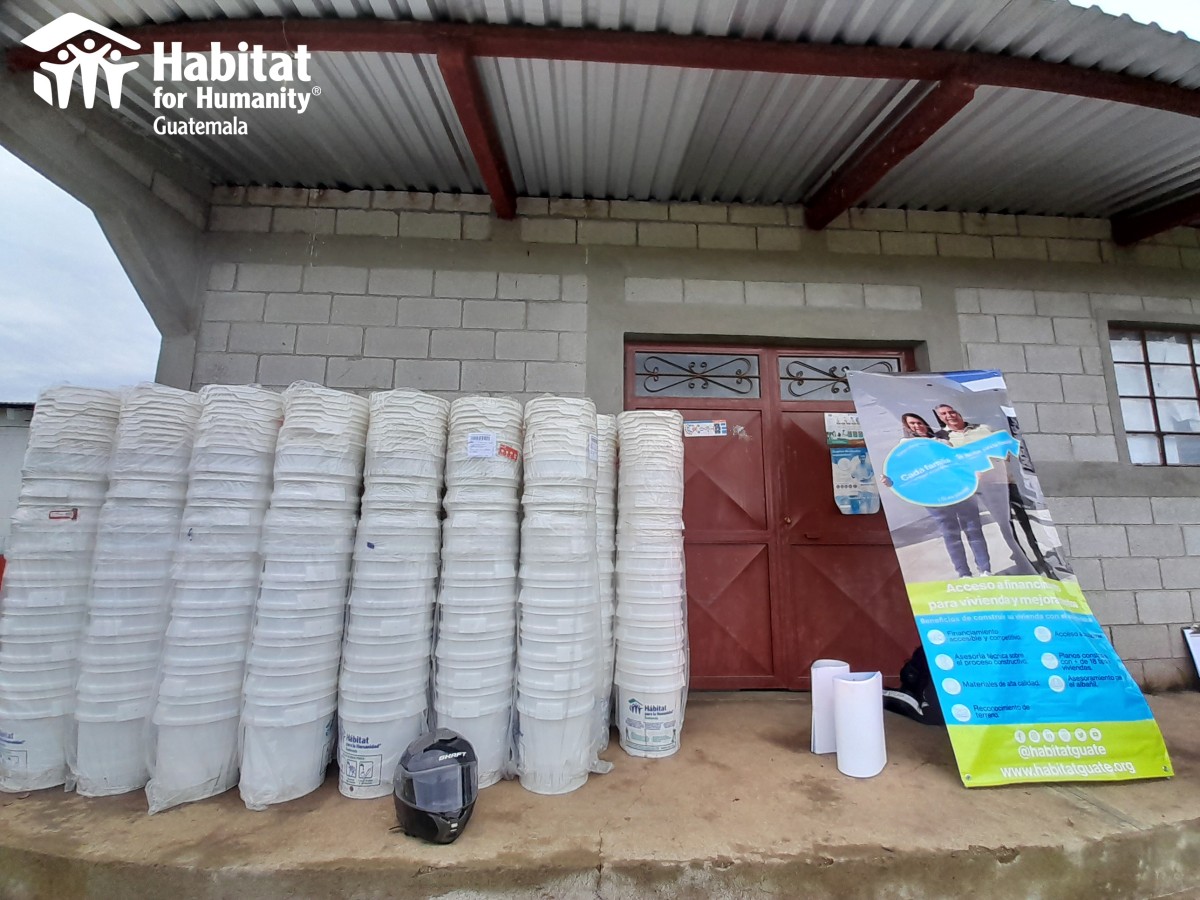
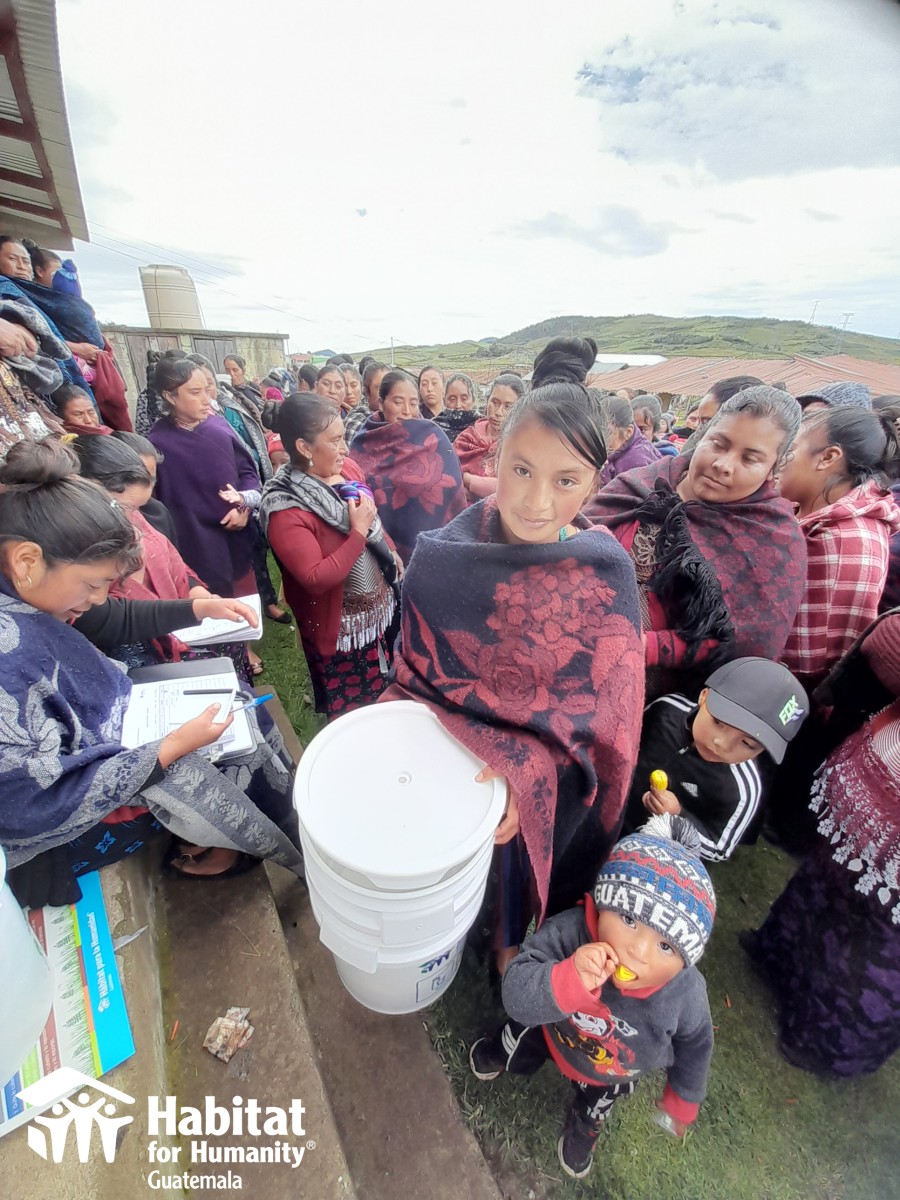
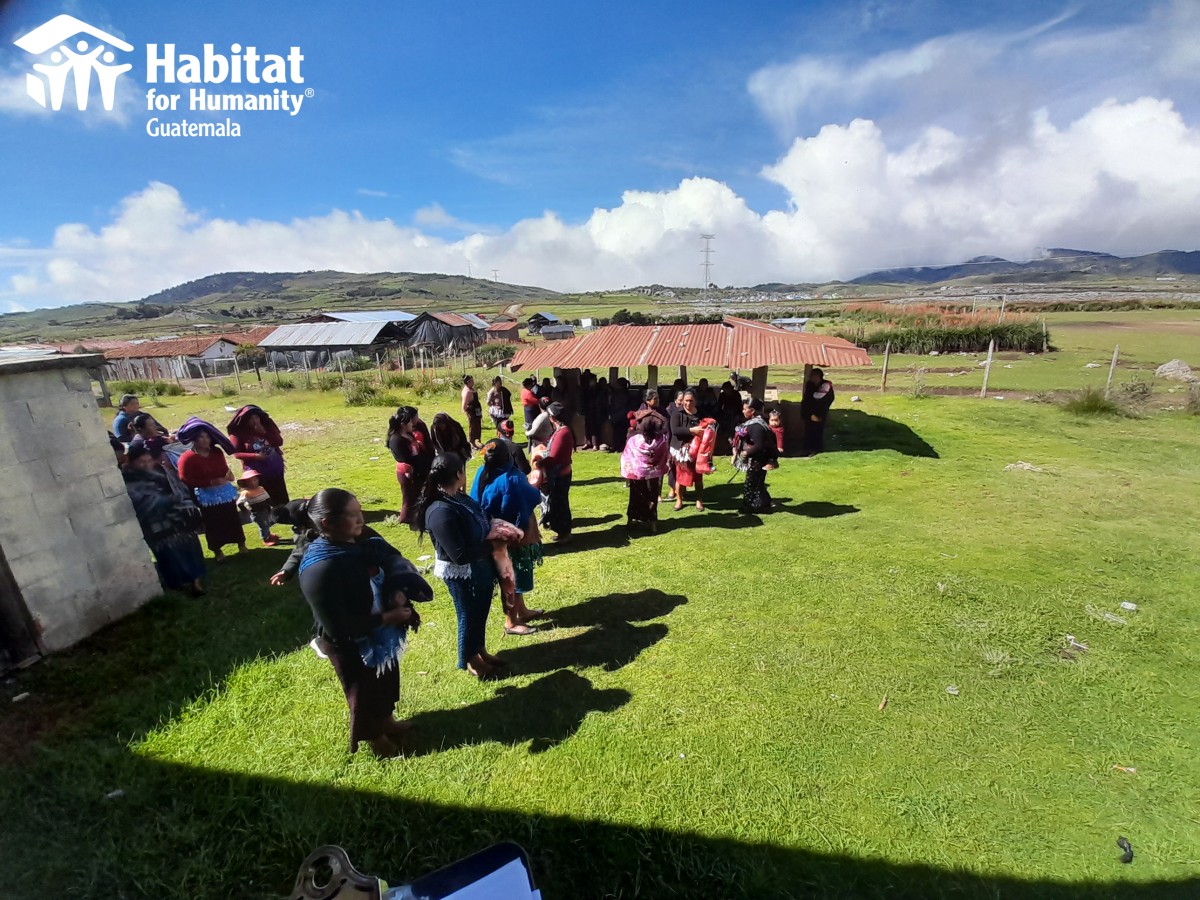
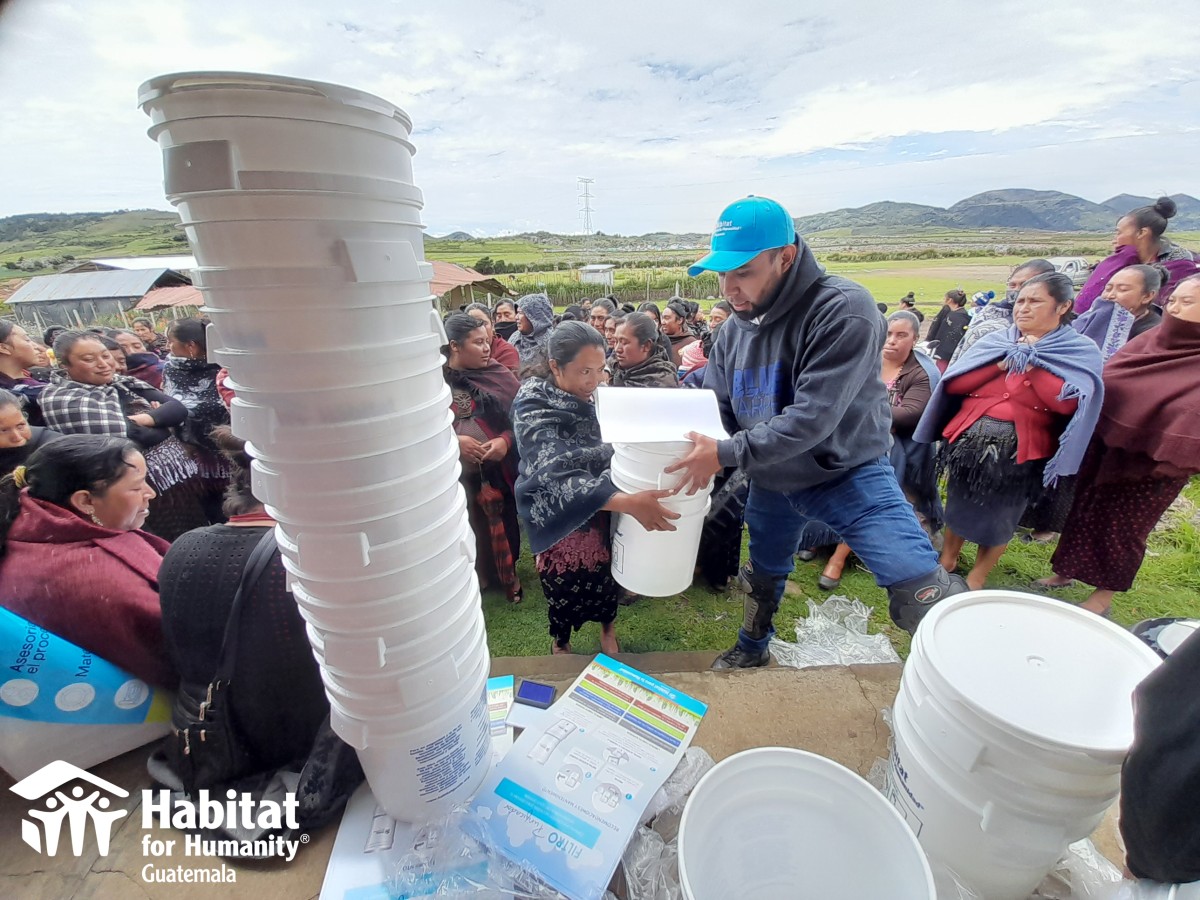
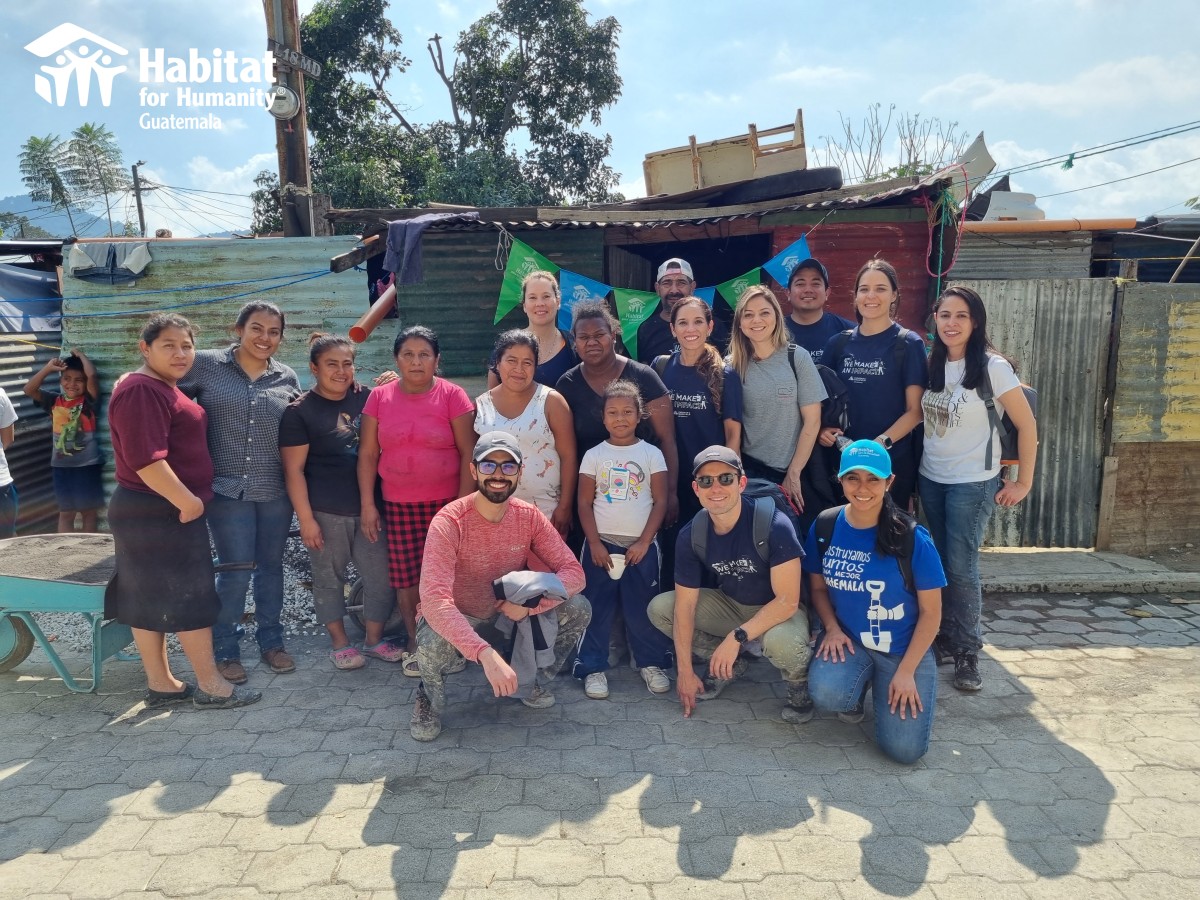
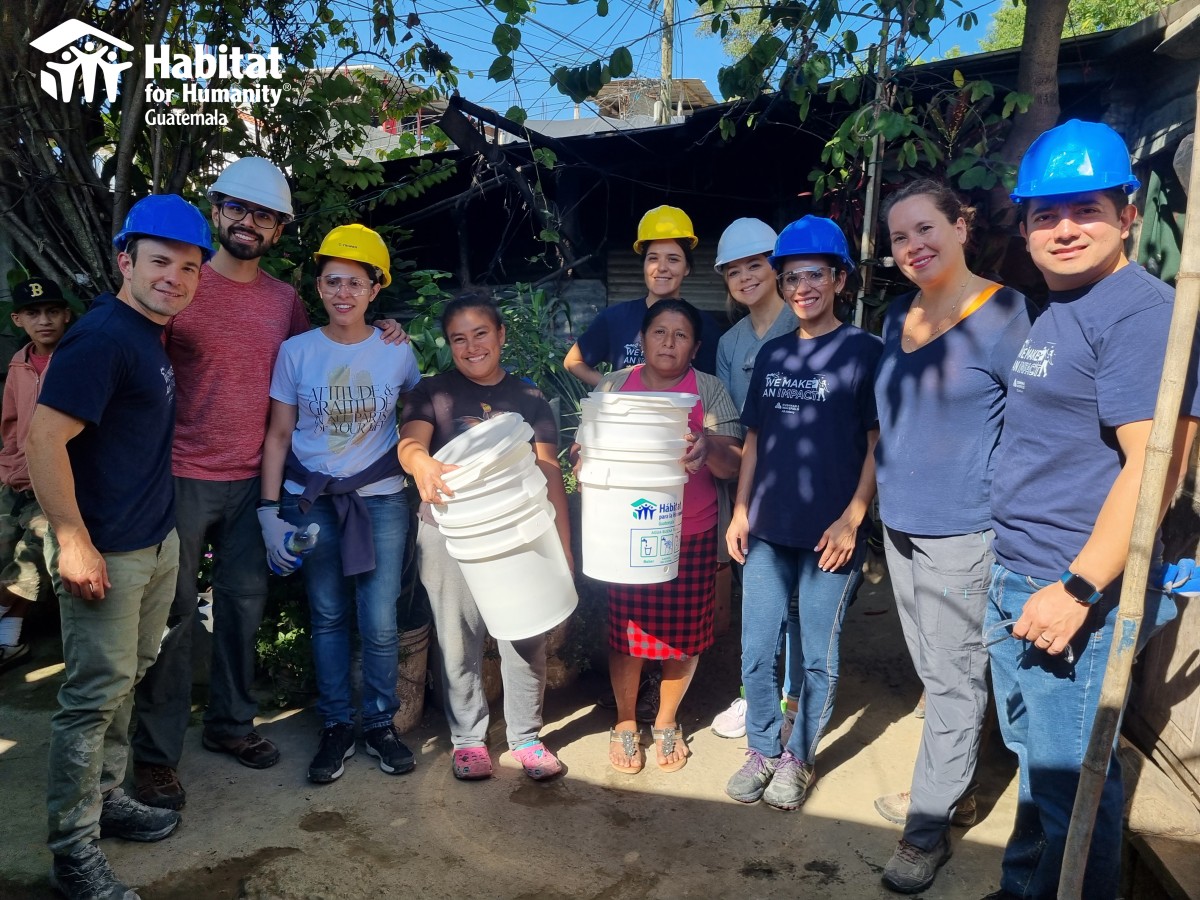
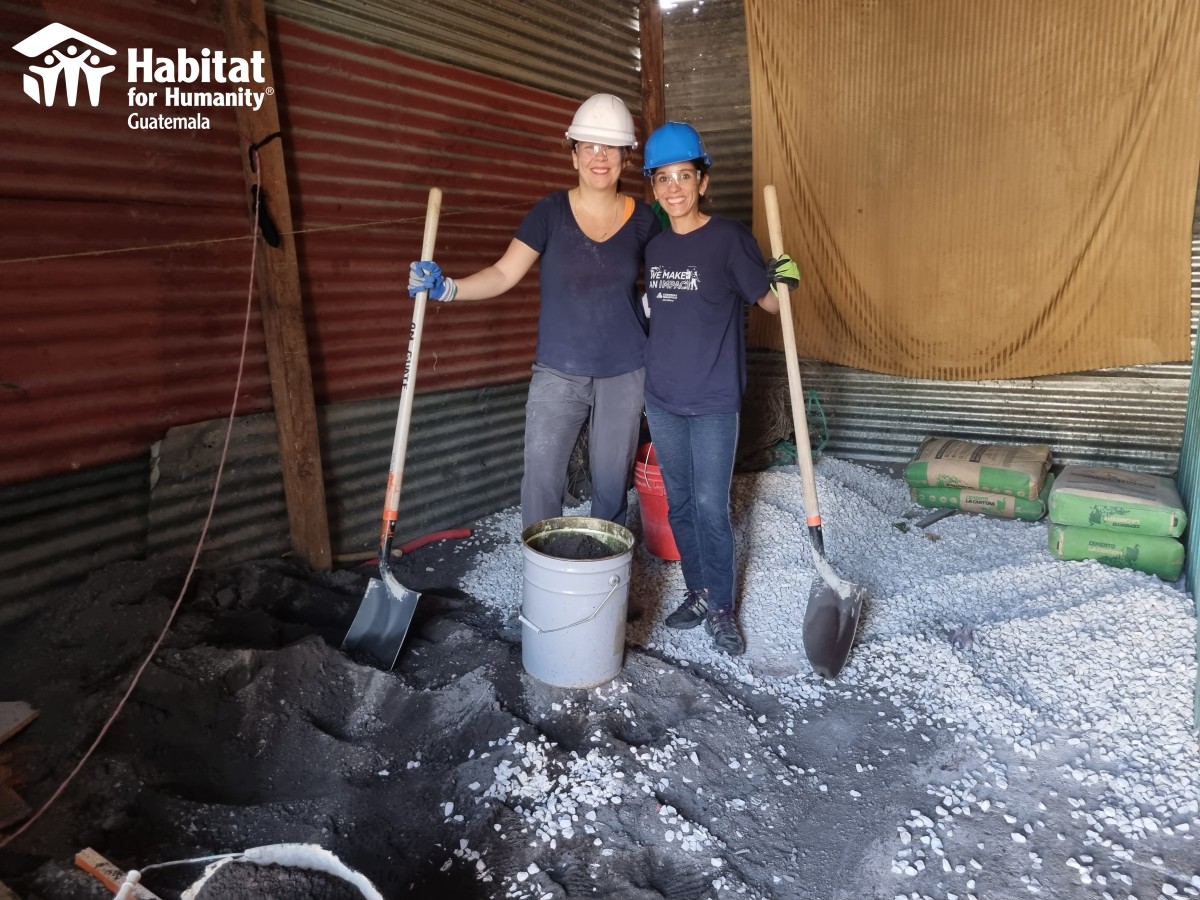
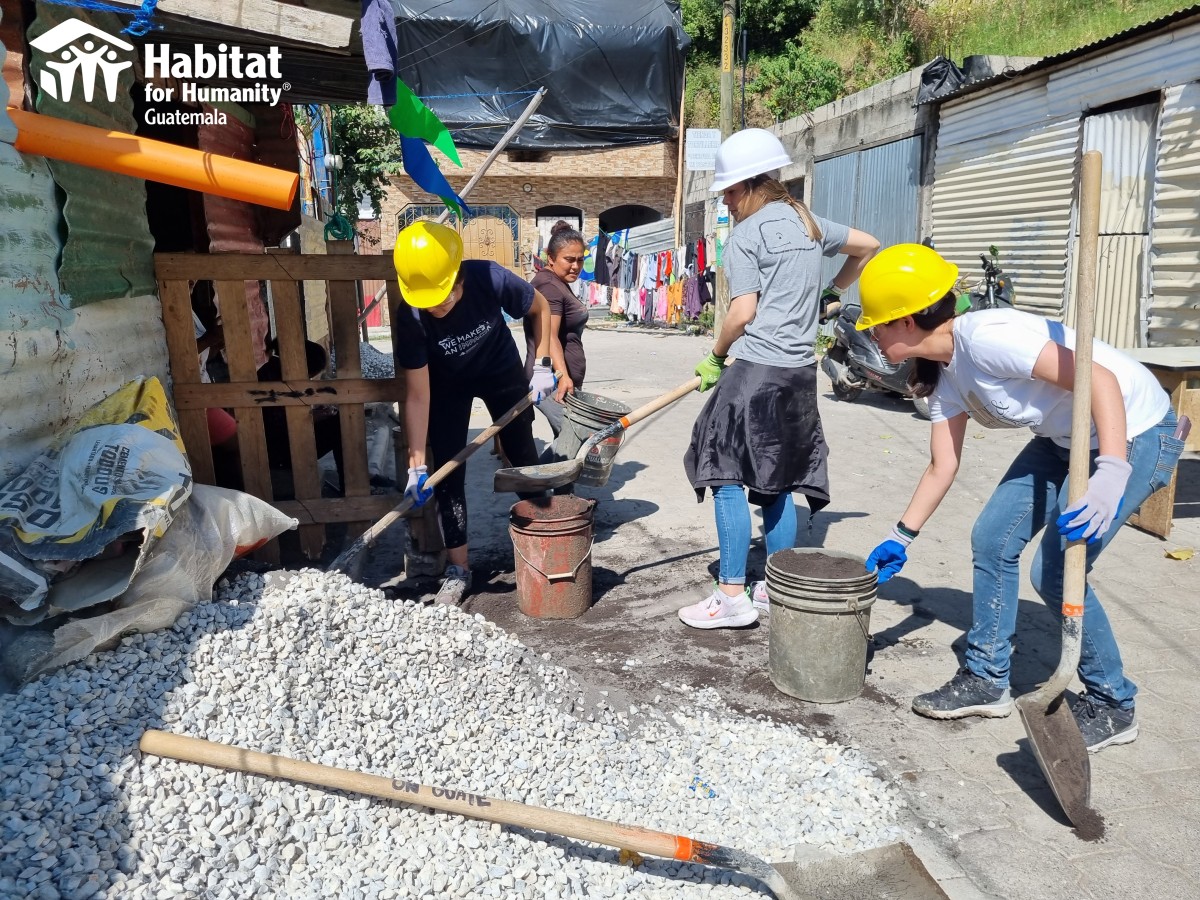
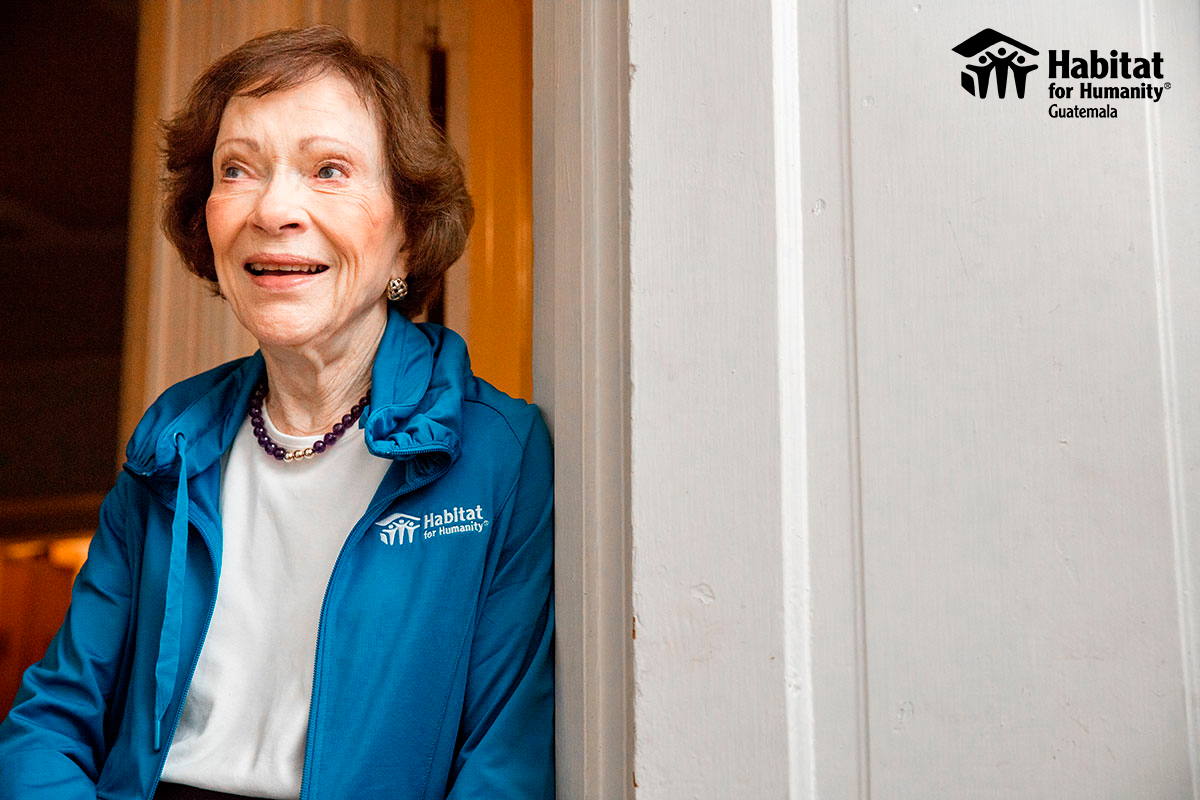
 Brenda likes to play with dolls, coloring books and notebooks, her favorite color is pink and she loves flowers.
Brenda likes to play with dolls, coloring books and notebooks, her favorite color is pink and she loves flowers. Brenda was diagnosed on June 29, 2023 with kidney disease, she is currently receiving her hemodialysis treatment in Guatemala City, for this the family usually leaves early in the morning to be able to arrive on time for her appointment.
Brenda was diagnosed on June 29, 2023 with kidney disease, she is currently receiving her hemodialysis treatment in Guatemala City, for this the family usually leaves early in the morning to be able to arrive on time for her appointment.

